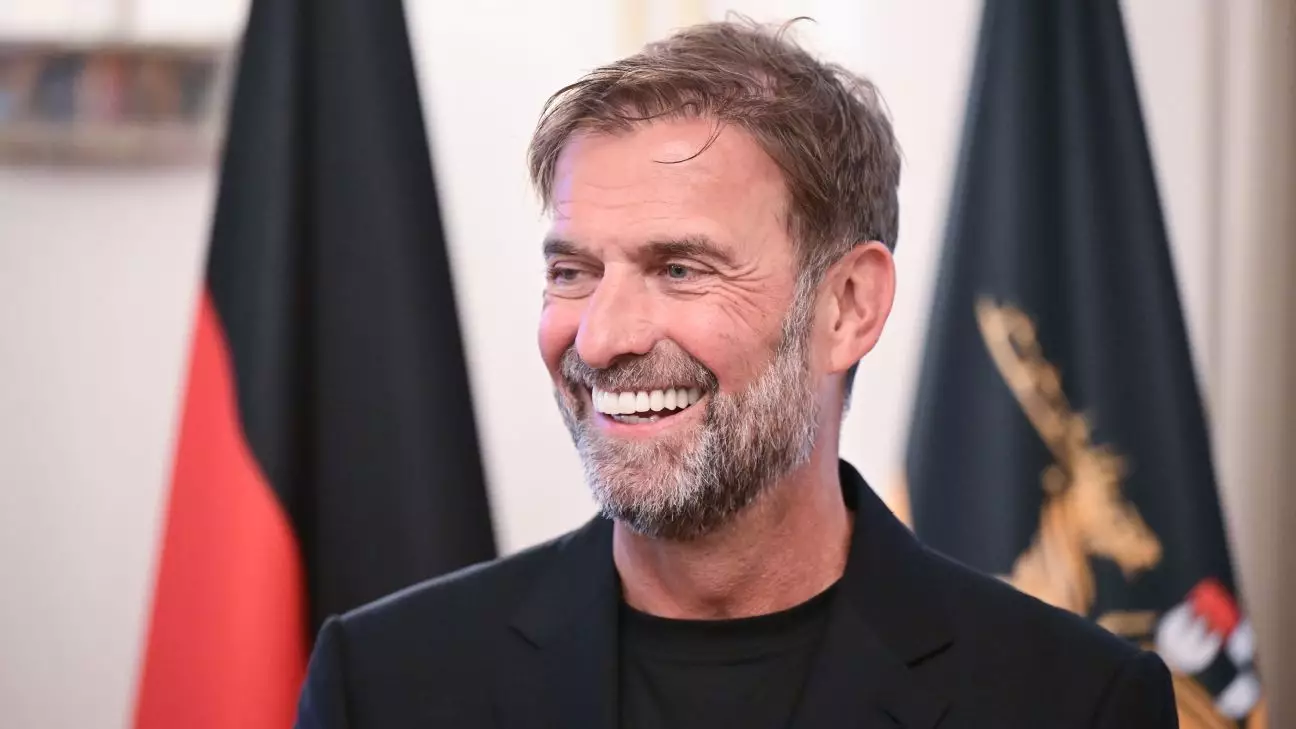Jürgen Klopp, a name synonymous with passion and tactical acumen, has recently stirred a significant wave of debate in the football community. After nearly a decade away from German football, Klopp made headlines with his unexpected acceptance of a role in the Red Bull organization as their global head of soccer. This move has sparked contemplations about his motivations, the implications for German football culture, and the ramifications for fans who have loyally supported him throughout his career.
Klopp’s charm and authenticity have made him a well-loved figure, not just in England—where he transformed Liverpool into a formidable force—but also in Germany, where he previously enjoyed considerable success. Ironically, his partnership with Red Bull, a corporation notorious for its controversial entry into football, raises questions about his allegiance to the traditional values many hold dear in German football. It poses a dilemma: can one truly embody the spirit of the game while associating with a brand often viewed as a commercial invader?
The public’s reception of Klopp’s move has been less than warm in Germany. Many fans and analysts perceive Red Bull as a representation of everything that undermines the core sentiments of what football should be—passionate, community-focused, and accessible. Klopp’s likening to a “people’s man” does not add comfort to those who view his new role as a betrayal of the cultural fabric that binds German football enthusiasts.
Indeed, the media fallout was palpable. The magazine Kicker deemed his transition as a “Kultur-Schock,” a cultural shock that encapsulates the discord between Klopp’s previous hero status and his current professional alignment. Disapproval runs high among traditionalists, with a staggering 72% of Kicker’s readers expressing their dissatisfaction with his choice. The intense negativity accentuates a larger cultural concern: are high-profile managers increasingly departing from the core essence of football in favor of lucrative, corporate partnerships?
The contrasting attitude from the English football community reflects a more relaxed perspective. British analysts have largely offered Klopp their blessings, suggesting he has earned the right to choose his path, free from the weight of tradition that seems to haunt his decision back in Germany. It raises pertinent questions about cultural attitudes toward football and whether the German approach is overly romanticized, disregarding modern realities soaked in commercial interests.
One must delve deeper to understand Klopp’s motivations. His decision appears to veer towards a longing for professional growth and novelty. In prior interviews, he has often expressed a desire to keep learning, and his new role promises an opportunity to engage with various clubs under the Red Bull umbrella, including connections with former players and associates. This presents an attractive prospect for a manager who has fueled much of his career through strong personal relationships in the sport.
However, this allure is a double-edged sword, as it simultaneously tasks him with rehabilitating the Red Bull brand within the German football psyche. The historical grievances associated with RB Leipzig’s inception cast a long shadow over his current role. Many fans resist the attempt to change perceptions, finding it hard to reconcile their rigid values with a modern football landscape increasingly dominated by corporate giants.
Contrasting Fortunes: Klopp vs. Tuchel
Interestingly, Klopp’s situation complements Thomas Tuchel’s new responsibilities as the England manager. The differing receptions between the two hint at a broader disconnect within German football culture. While Tuchel has found a warm welcome in England, embracing the national football culture as one of his own, Klopp’s association with Red Bull seems to have incited unrest among fans who cherish tradition.
The added focus on club hierarchy dynamics in the Bundesliga emphasizes this divergence. Under Julian Nagelsmann, the German national team has begun to reflect a systemic change characterized by meritocracy and performance-based selection. The notion of separating talent from club affiliation marks a stark contrast to the past, a shift that appears to favor evolving football philosophies over archaic tribalism.
As the dust settles on Klopp’s controversial move, one thing becomes clear: the evolving landscape of football is prompting discussions that transcend individual choices. Klopp’s new role embodies the tensions between commercial interests and traditional loyalties that every football fan grapples with today. Ultimately, while Klopp seeks personal growth and professional learning, the challenge ahead lies in navigating the murky waters of brand perception and ideological alignment. His future endeavors will either redefine his legacy or solidify the fractures in the relationship between fans and modern football’s rapid commercialization.

